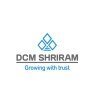
i
Gujarat Fluorochemicals
Filter interviews by
Gujarat Fluorochemicals Senior QC Chemist Interview Questions and Answers
Gujarat Fluorochemicals Senior QC Chemist Interview Experiences
1 interview found
I applied via Walk-in and was interviewed in Jun 2024. There were 2 interview rounds.
(4 Questions)
- Q1. How many total experience?
- Q2. Chemical company experience??
- Q3. Knowledge of instruments? Like GC ; Karlfischer ; UV visible spectrometer etc.
- Q4. Knowledge of basic computer?
(2 Questions)
- Q1. Present CTC? Expected CTC?
- Ans.
Current CTC is $80,000 per annum. Expected CTC is $90,000 per annum.
Current CTC: $80,000 per annum
Expected CTC: $90,000 per annum
- Q2. Working in bond system in GFL. You are interested?
- Ans.
Yes, I am interested in working in the bond system at GFL.
I have experience working with bond systems in previous roles.
I am familiar with the processes and procedures involved in bond systems.
I am eager to learn and contribute to the bond system at GFL.
Interview Preparation Tips
- Chemistry basic knowledge.
- Chiemistry
Top trending discussions






Interview questions from similar companies

Deputy Manager Interview Questions & Answers
Godrej Industries Groupposted on 28 Apr 2021
I applied via LinkedIn and was interviewed in Oct 2020. There were 4 interview rounds.
Interview Questionnaire
1 Question
- Q1. Last work ex
Interview Preparation Tips

Deputy Manager Interview Questions & Answers
Godrej Industries Groupposted on 24 Feb 2022
I applied via Approached by Company and was interviewed before Feb 2021. There were 4 interview rounds.
(1 Question)
- Q1. Normal apptitude & writing skill test
(1 Question)
- Q1. Product related information
Interview Preparation Tips

I applied via Naukri.com and was interviewed before Jul 2022. There were 3 interview rounds.

(1 Question)
- Q1. Technical Questions related to past experience
(1 Question)
- Q1. Questions regarding last job experience, qualification and salary decisions
Interview Preparation Tips

I applied via Company Website and was interviewed before Aug 2022. There were 3 interview rounds.

(2 Questions)
- Q1. Why you want To join?
- Ans.
I want to join because I am motivated to take on a leadership role and contribute to the growth and success of the organization.
I have a strong passion for leadership and have successfully managed teams in my previous roles.
I am excited about the opportunity to make a positive impact and drive results.
I believe in the company's mission and values, and want to be a part of its future success.
I am impressed by the compan...
- Q2. What is your strength?
- Ans.
My strength is my ability to effectively manage teams and drive them towards achieving goals.
Strong leadership skills
Excellent communication and interpersonal skills
Ability to motivate and inspire team members
Experience in setting and achieving targets
Proven track record of successfully managing projects
(3 Questions)
- Q1. What is the project experinece?
- Ans.
I have extensive project experience in managing teams and delivering successful outcomes.
Managed a team of 10 members to successfully complete a software development project within the given timeline and budget.
Led a cross-functional project team to implement a new customer relationship management system, resulting in improved efficiency and customer satisfaction.
Implemented a cost-saving initiative by streamlining pro...
- Q2. What is the Electrical Activities?
- Ans.
Electrical activities refer to the various tasks and operations related to the use, installation, maintenance, and repair of electrical systems and equipment.
Electrical activities involve working with electrical systems, circuits, and components.
They include tasks such as wiring, installation of electrical fixtures, and troubleshooting electrical issues.
Maintenance and repair of electrical equipment and systems are als...
- Q3. What is the Installation Process of Transformer?
- Ans.
The installation process of a transformer involves several steps to ensure proper functioning and safety.
Select a suitable location for the transformer installation, considering factors like accessibility, ventilation, and safety.
Prepare the foundation for the transformer, ensuring it is strong and stable to support the weight of the equipment.
Position the transformer on the foundation and secure it properly.
Connect th...

I applied via Approached by Company and was interviewed in Aug 2022. There were 3 interview rounds.

(1 Question)
- Q1. About your field knowledge.
(1 Question)
- Q1. Personal enquiry and last sallary structure
Interview Preparation Tips

I applied via Naukri.com and was interviewed before Aug 2023. There were 4 interview rounds.
MCQs based on analytical thinking and test of English
(2 Questions)
- Q1. What is the unit of SFC?
- Ans.
SFC stands for Specific Fuel Consumption, which is a unit used to measure the amount of fuel consumed per unit of power produced.
SFC is typically measured in units such as kg/kWh (kilograms per kilowatt-hour) or g/kWh (grams per kilowatt-hour).
It is commonly used in the aviation industry to measure the efficiency of aircraft engines.
Lower SFC values indicate higher fuel efficiency and vice versa.
- Q2. Engine torque versus rpm curve
- Ans.
Engine torque versus rpm curve shows how much twisting force an engine can produce at different engine speeds.
Engine torque is the measure of the twisting force an engine can produce
RPM (revolutions per minute) indicates how fast the engine is spinning
The torque curve shows the relationship between engine torque and RPM
Engines typically produce more torque at lower RPMs for better acceleration
High-performance engines m...
(2 Questions)
- Q1. Why do you want to join Godrej?
- Ans.
I want to join Godrej because of its strong reputation for innovation, sustainability, and employee development.
Godrej has a strong reputation for innovation and sustainability in the industry.
I am impressed by Godrej's commitment to employee development and growth opportunities.
I believe that working at Godrej will provide me with a challenging and rewarding career.
- Q2. Why should we hire you?
- Ans.
I have the necessary skills, experience, and leadership qualities to excel in the role of Deputy Manager.
I have a proven track record of successfully managing teams and projects.
I possess strong communication and problem-solving skills.
I am highly organized and detail-oriented, ensuring tasks are completed efficiently.
I am dedicated, motivated, and committed to achieving the goals of the organization.
(2 Questions)
- Q1. Are you willing to locate at our new manufacturing plant?
- Ans.
Yes, I am willing to relocate to the new manufacturing plant.
I am open to new opportunities and challenges
I understand the importance of being flexible and adaptable in my career
I have relocated for work in the past and have had positive experiences
- Q2. What are your achievements till now?
- Ans.
I have successfully led a team to achieve a 20% increase in sales revenue within one year.
Led a team to achieve a 20% increase in sales revenue
Implemented new sales strategies resulting in higher customer retention
Received Employee of the Month award for outstanding performance
Interview Preparation Tips

I applied via Referral and was interviewed before Mar 2022. There were 3 interview rounds.

Mechanical Engineering related TechnicalAptitude test. Reasoning test.English essay writing test.
(2 Questions)
- Q1. TPM,Kaizens,Role and organization structure in previous organization.
- Ans.
Implemented TPM and Kaizens to improve efficiency and productivity. Worked within a structured organization with clear roles.
Implemented TPM (Total Productive Maintenance) to reduce downtime and increase equipment effectiveness
Implemented Kaizens (continuous improvement) to identify and eliminate waste in processes
Worked within a structured organization with clear roles and responsibilities to ensure efficient workflow
...
- Q2. What projects you have done.
Interview Preparation Tips

Interview Questionnaire
1 Question
- Q1. Family background
Interview Preparation Tips

Deputy Manager Interview Questions & Answers
Godrej Industries Groupposted on 14 Jul 2022
I applied via Naukri.com and was interviewed in Jan 2022. There were 4 interview rounds.

(1 Question)
- Q1. About your previous work profile
Ven diagram, mathematics and general English
(1 Question)
- Q1. Related to engineering branch
Interview Preparation Tips
Gujarat Fluorochemicals Interview FAQs
Tell us how to improve this page.
Gujarat Fluorochemicals Interviews By Designations
- Gujarat Fluorochemicals Assistant Supervisor Interview Questions
- Gujarat Fluorochemicals Manager Interview Questions
- Gujarat Fluorochemicals Shift Engineer Interview Questions
- Gujarat Fluorochemicals Chemist Interview Questions
- Gujarat Fluorochemicals Senior Security Officer Interview Questions
- Gujarat Fluorochemicals Production Engineer Interview Questions
- Gujarat Fluorochemicals General Manager Interview Questions
- Gujarat Fluorochemicals Supervisor Interview Questions
- Show more
Interview Questions for Popular Designations
Gujarat Fluorochemicals Senior QC Chemist Interview Process
based on 1 interview
Interview experience
Interview Questions from Similar Companies
Gujarat Fluorochemicals Senior QC Chemist Reviews and Ratings
based on 1 review
Rating in categories
|
Assistant Supervisor
355
salaries
| ₹1.6 L/yr - ₹6.3 L/yr |
|
Senior Engineer
220
salaries
| ₹3.7 L/yr - ₹9.3 L/yr |
|
Engineer
199
salaries
| ₹3 L/yr - ₹7 L/yr |
|
Assistant Manager
160
salaries
| ₹5.2 L/yr - ₹15 L/yr |
|
Production Engineer
141
salaries
| ₹3 L/yr - ₹7.3 L/yr |

Pidilite Industries

Berger Paints

SRF

Kansai Nerolac Paints
- Home >
- Interviews >
- Gujarat Fluorochemicals Interview Questions >
- Gujarat Fluorochemicals Senior QC Chemist Interview Questions









